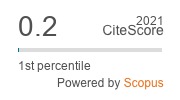Georgia's Reform of the Pension System and Demographic Dividend
DOI:
https://doi.org/10.17762/msea.v71i4.1413Abstract
The relationship between demographic change and economic development is a hot topic for researchers in both directions. The increasing population ageing index, as well as the mortality rate, are a result of a variety of different issues. Demographic mortality is an unfavourable process that hurts both the social and economic aspects of society. The loss of economically active citizens will have a substantial economic impact on the country. Demographers and economists are collaborating to develop cost-effective methods for quantifying losses and outcomes. In contemporary times, economists have emphasized the importance of demographic processes in ensuring economic development. However, the economic growth factor was not demographic growth in general, but rather the age structure of the population. The demographic structure of a country is inextricably linked to the state of its pension system. While the state pension system continues to play a dominant role in Georgia, the rising ageing index jeopardizes the state's ability to implement social policy in terms of pension resource mobilization.
The article examines the country's demographic situation and demonstrates how violations of the demographic dividend's regularity act as a hindrance to economic development. The dividend calculation algorithm is built around the population structure, inferring an asymmetric relationship between the factors impeding demographic transition and economic development. The study spans the years 2000 to 2020.
The study concluded that in the first stage, not only the generation of a demographic dividend but also the population's social protection, could not be accomplished adequately. The second stage's demographic dividend is positive, despite the low likelihood of saving. The research findings served as the foundation for Georgia's 2018 introduction of an accumulative pension system. The study discusses the reasons for the need for a funded pension system and the short-term results, which are accompanied by populist nihilism regarding future receivables.




